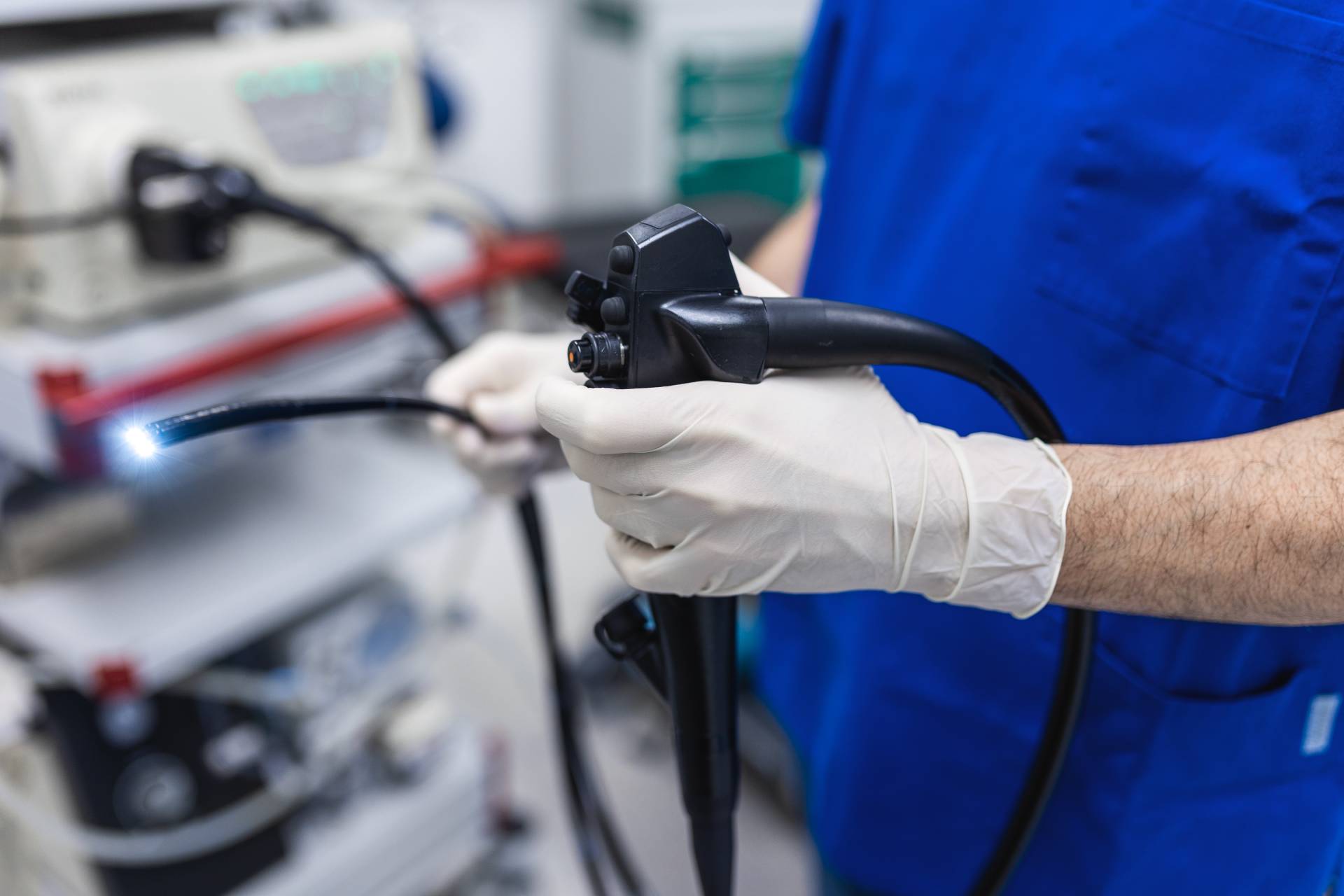Endoscopic Ultrasound (EUS) in Louisiana
What is an endoscopic ultrasound (EUS)?
An endoscopic ultrasound (EUS) may be performed to evaluate abnormalities in the wall of the intestine, or abnormalities in other organs such as the pancreas, biliary system, and chest. The EUS is often used to help stage cancer. If you have been experiencing troubling symptoms related to your GI tract, this procedure could help diagnose and begin treatment for your condition. Contact GI Alliance to learn more about this and other endoscopic procedures.
An endoscopic ultrasound (EUS) is an endoscopic procedure where a scope (thin, long, flexible tube) gets placed through the mouth and advanced into the small intestine or rectum. Our GI physicians can evaluate the lining of the esophagus, stomach, and first portion of the small intestine because the scope has a light and a camera on the end of it.
An ultrasound probe is also on the EUS scope to examine the GI tract using ultrasound waves. Using an ultrasound allows our team to look at the various layers of the intestinal wall and other organs in the body. Endoscopic ultrasounds can assess abnormalities in the pancreas, biliary system, chest, and the walls of the intestine. It is common for EUS to be used to stage cancer. If you’ve had GI tract symptoms causing you to worry, an EUS procedure may help. Contact our team at GastroGroup & Endocenter to request an appointment to get started.

Why would I need an EUS?
Your physician may use an endoscopic ultrasound for a variety of issues. Some of them include:
- Study of tumors or abnormalities in organs like the gallbladder and liver
- Study of nodules in the intestinal wall
- Evaluation of stages of cancer
- Evaluation of disorders of the pancreas
- Study of the muscles of the lower rectum and anal canal to discover causes of fecal incontinence
- Assessment of Barrett’s esophagus
- Evaluation of bile duct stones
- Evaluation of sarcoidosis
What should I expect the day before my endoscopic ultrasound?
Necessary preparation instructions will be provided by our GI doctors. You will be asked to not eat or drink after midnight (excluding medications). You can generally take your medications as usual, except for patients on blood thinners (i.e. coumadin, warfarin, plavix, aspirin, anti-inflammatories), or patients who are diabetic. Special instructions will be provided in those cases.
What happens on the day of my endoscopic ultrasound?
An additional meeting with your GI specialist at GastroGroup & Endocenter will be scheduled to review the results of your endoscopic mucosal resection and the findings of any laboratory tests done on tissue samples. Some questions to raise with your doctor include:
- Do I need to see a cancer doctor (oncologist)?
- Were you able to eliminate all anomalous tissue?
- If I have cancer, will I require additional treatments?
- What were the results of the laboratory tests? Do I have cancer?
- How will you watch my health?
Typically, you will have a supplementary upper endoscopy or colonoscopy a few months after your endoscopic mucosal resection to be sure the lesion is gone. During your first procedure, your specialist could stain the section of the eliminated growth with ink (tattoo) so that the area can be easily inspected during any future procedures. The needs for additional appointments depend on the conclusions of these results.
What are the risks of an endoscopic ultrasound?
Endoscopic procedures are generally safe procedures, with complications occurring in less than 1% of individuals. When complications arise they typically aren’t life-threatening. When a complication does occur, you might need surgery or hospitalization. Before the exam starts, you’ll sign a consent form that’s reviewed with you by the nursing staff. If you have any questions or concerns, please discuss them with the GI doctor before the procedure begins.
Sedation reactions may also occur including difficulty breathing, allergic reactions, impacts on the heart and blood pressure, and vein irritation where the medication is administered. With fine needle aspiration and biopsies, bleeding might occur. Any considerable bleeding could demand a blood transfusion or hospitalization, but is infrequent.
Perforations or punctures of the stomach, small intestine, or esophagus may also happen. It can be spotted during the exam, or be visible later in the day. A perforation generally requires surgery and hospitalization. However, this issue is uncommon.
If you notice symptoms like abdominal pain, bleeding, or fever, it’s important that you contact our office immediately. An endoscopic ultrasound procedure isn’t perfect and there’s a small chance that abnormalities (including cancer) may be missed during the exam. Follow-up appointments with our GI team are important. You should inform them of any new or persistent symptoms that occur.
What are alternatives to an endoscopic ultrasound (EUS)?
Any alternatives to the exam are dependent on why an endoscopic ultrasound was needed. There are many cases where an endoscopic ultrasound (EUS) is the ideal method to evaluate and treat abnormalities. Diagnostic exams like MRIs, CT scans, and transabdominal ultrasounds can also examine the GI tract.

